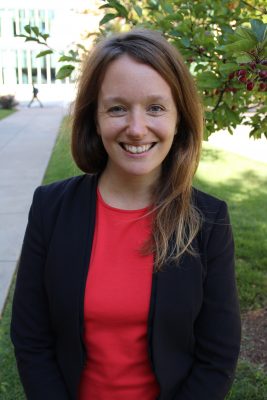Using her “sketchnotes” method of communicating ideas about mathematics literacy and algebra concepts, Professor Nicole Fonger’s new book seeks to support all learners as they experience algebra as meaningful.
 Fonger will celebrate the publication of Making Algebra Meaningful: A Visual Approach to Math Literacy for All (Teachers College Press, 2024) on Sept. 12, 2024, with a book launch in the Peter Graham Scholarly Commons, Bird Library Room 114, Syracuse University, from 4:30 to 6 p.m. The event will include a gallery of sketchnotes used in the book, plus an opportunity for attendees to draw their own “visual notes.”
Fonger will celebrate the publication of Making Algebra Meaningful: A Visual Approach to Math Literacy for All (Teachers College Press, 2024) on Sept. 12, 2024, with a book launch in the Peter Graham Scholarly Commons, Bird Library Room 114, Syracuse University, from 4:30 to 6 p.m. The event will include a gallery of sketchnotes used in the book, plus an opportunity for attendees to draw their own “visual notes.”
An essential understanding of the uses and practices of algebra remain out of reach for many students. To address this issue, Fonger’s book uses a highly visual approach to detail four research-based lenses with examples from ninth grade algebra classrooms: (1) students’ algebraic reasoning and representing; (2) goal-directed classroom practices with technology; (3) culturally and historically responsive algebra literacy; and (4) teachers’ journeys toward implementing math literacy for all learners.
In Making Algebra Meangingful, Fonger makes connections among research in algebra education; teaching algebra; and leading ambitious and equitable visions for algebra education.
At the same time, the book supports students’ efforts to fluently reason and represent expressions, equations, and functions, as well as teachers’ design of lessons that are culturally and historically responsive to students’ experiences and social justice issues.
Readers are encouraged to use their own sketchnotes to reflect on and communicate complex ideas in teaching and learning algebra.
“Making Algebra Meaningful uses sketchnotes to share a vision of teaching that invites students to be curious, ask questions, and interrogate mathematical and social ideas,” writes Amy Ellis,Professor of Mathematics Education, Mary Frances Early College of Education, University of Georgia. “This book humanizes algebra as something that all people can do, and Fonger shows us how to support students’ identities as powerful, competent learners of mathematics.”
An Associate Professor of Mathematics and Mathematics Education in the College of Arts and Sciences and School of Education, Fonger is a community-engaged scholar, visual artist, mathematics teacher educator, and mother, Fonger’s research agenda addresses an enduring issue in mathematics education: how to support students’ meaningful learning of algebra in K-12 school settings.
